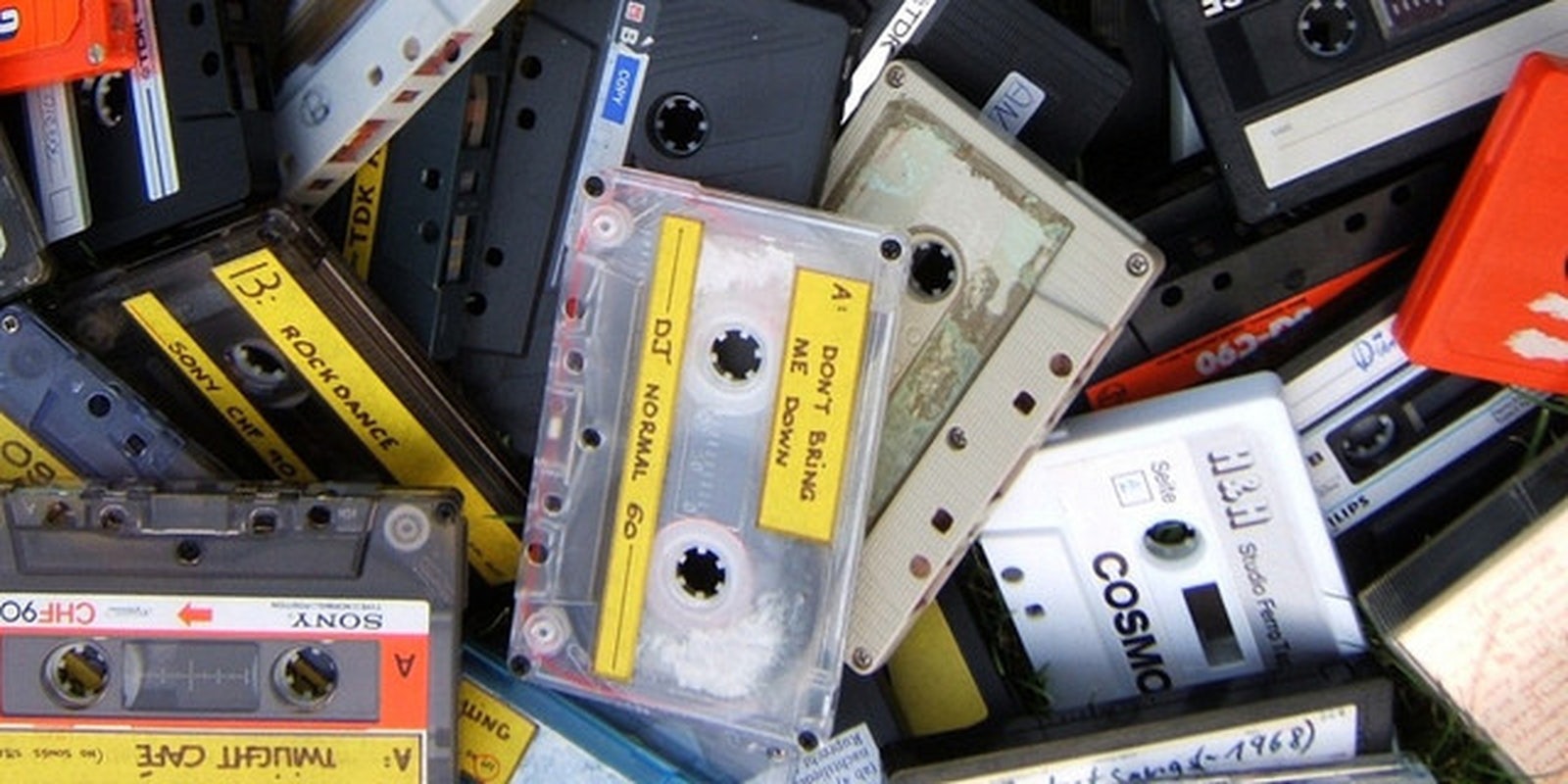Sony just took the mixtape to a whole new level.
On Sunday, Sony’s latest tech development was discussed at the IEEE International Magnetics Conference in Dresden, Germany. The company recently developed a new magnetic cassette tape that holds 148 GB per square inch of tape, which means one cassette could hold 185 TB of data. To put that into perspective, that’s 64 million songs.
This brave new world of cassette usage was developed via a technique called sputter deposition. Magnetic particles on the tape are closely packed together by firing ions at the polymer film substrate, producing a vacuum-thin layer. According to IT World, “[b]y tweaking the sputter conditions and developing a soft magnetic underlayer on the film, the manufacturer was able to create a layer of fine magnetic particles with an average size of 7.7 nanometers.”
It’s been reported that this cassette could hold 3,700 times more data than a Blu-ray disc, but this new tech isn’t necessarily aimed at the entertainment and recording industry; it will be more useful for longterm mass data backup.
For comparison, the NSA’s Utah Data Center is estimated to hold anywhere from exabytes (a billion gigabytes) to yottabytes (a million exabytes). Facebook’s prototype data storage model uses 10,000 Blu-rays to store a petabyte of data. Not a huge leap from terabytes to petabytes.
Cassette-tape culture has been revitalized in the last few years, so this announcement has certainly excited tapeheads. For some, cassettes and the culture around them are completely alien, so this new tech will literally be new tech. The storage capacity blows away the latest iPod iteration—one tape could potentially hold more than 64 million songs. Still, it’s not clear how affordable these tapes will be when they are eventually released. Sony managed to create an incredibly high density from a relatively cheap medium.
The amount of content that could fit on one tape could open up all sorts of possibilities for data storage and archiving, but it will be interesting to see how widely available they are on the commercial market, and how Sony markets it. When it does debut, this tech could change the way we look at and store data.
H/T Gizmodo | Photo via cassettes/Flickr (CC BY 2.0)


